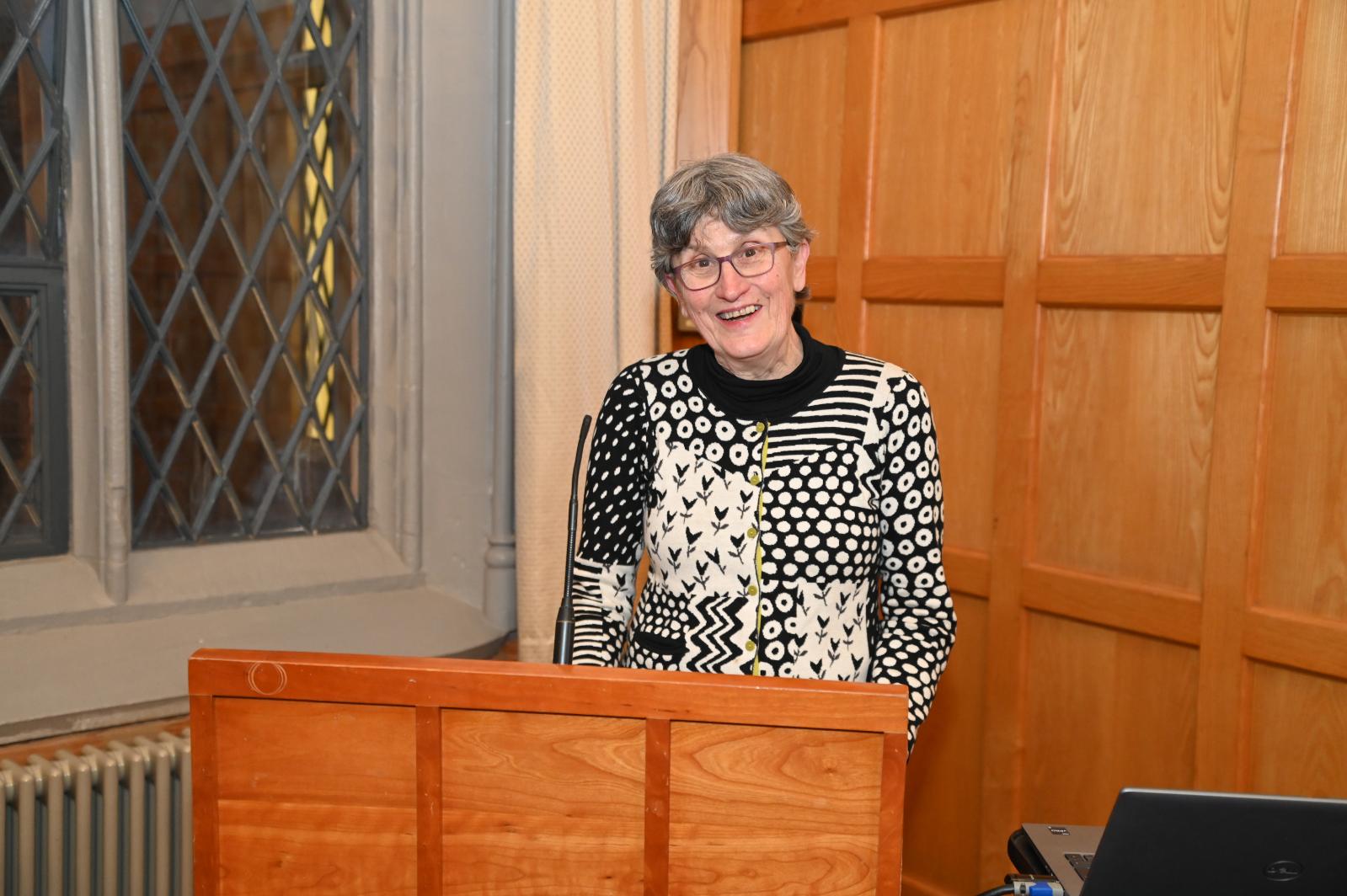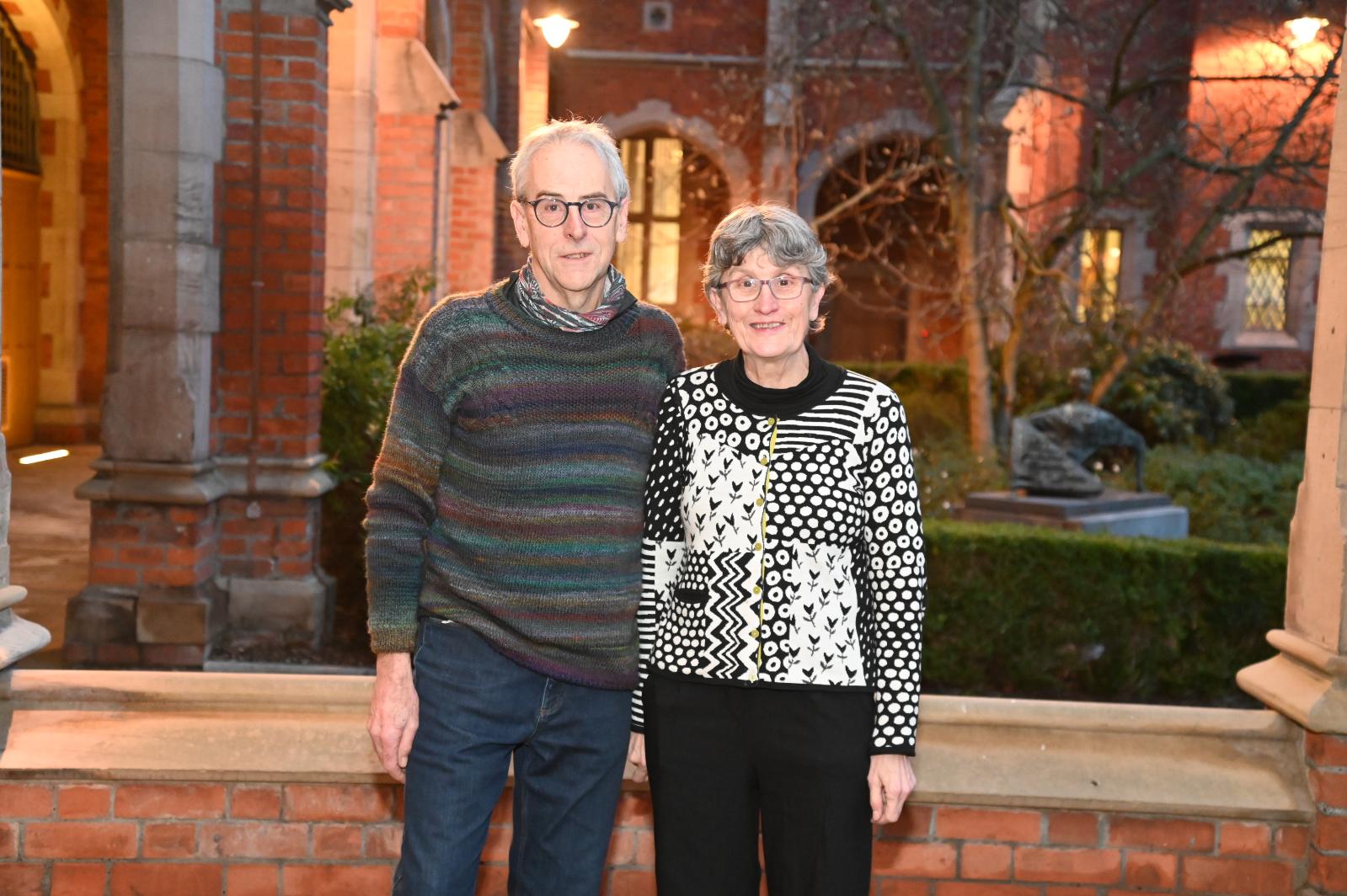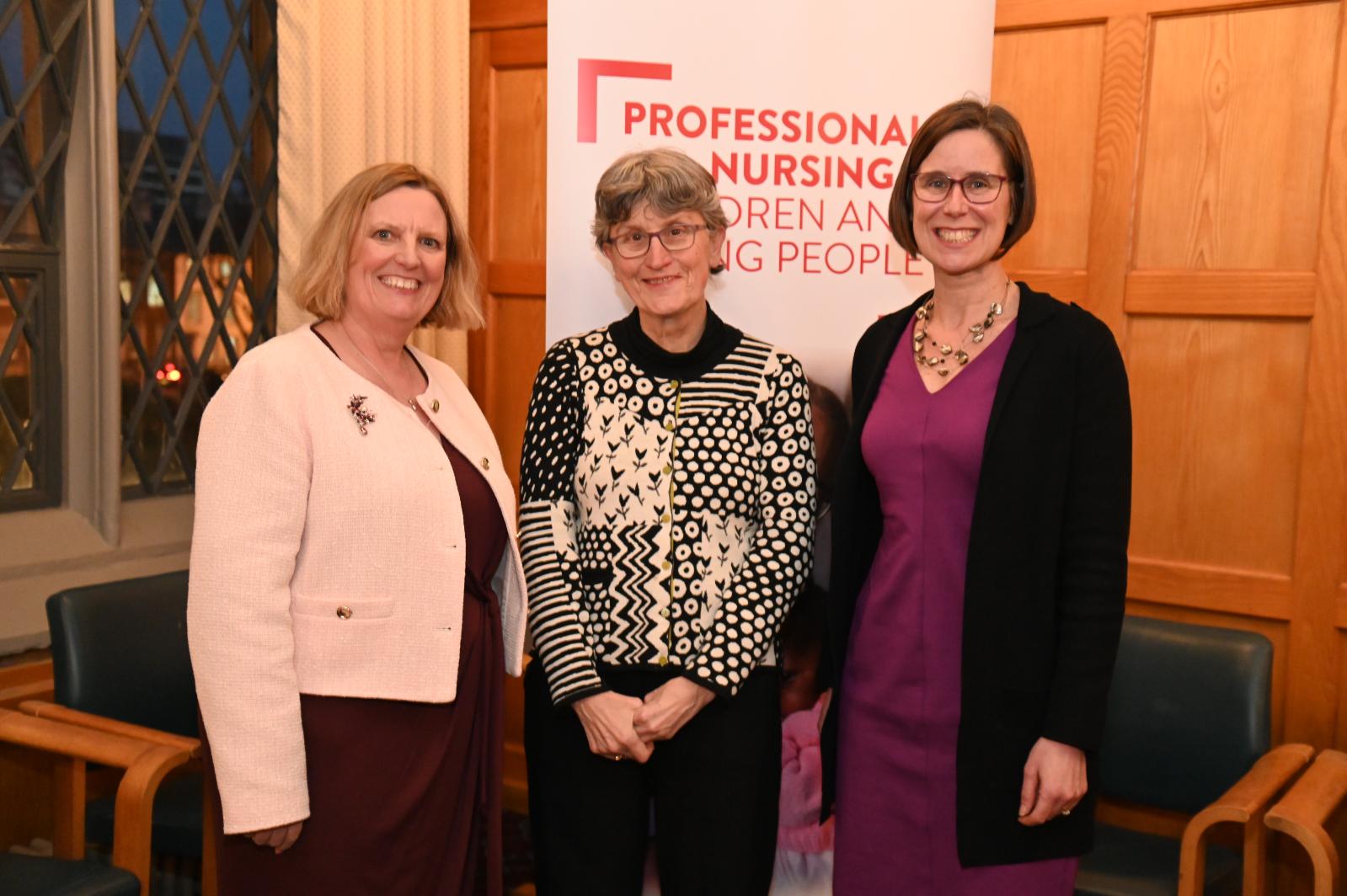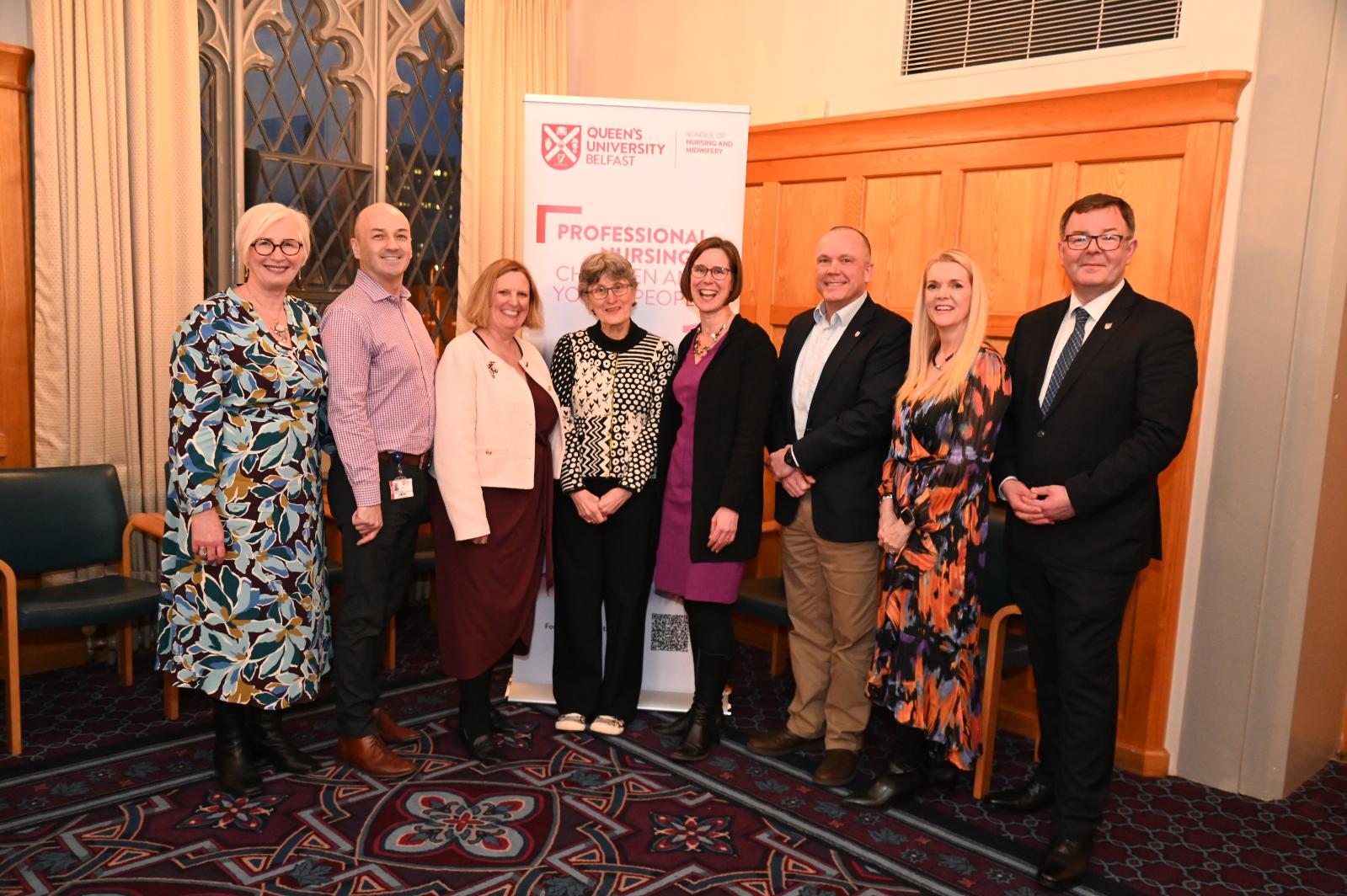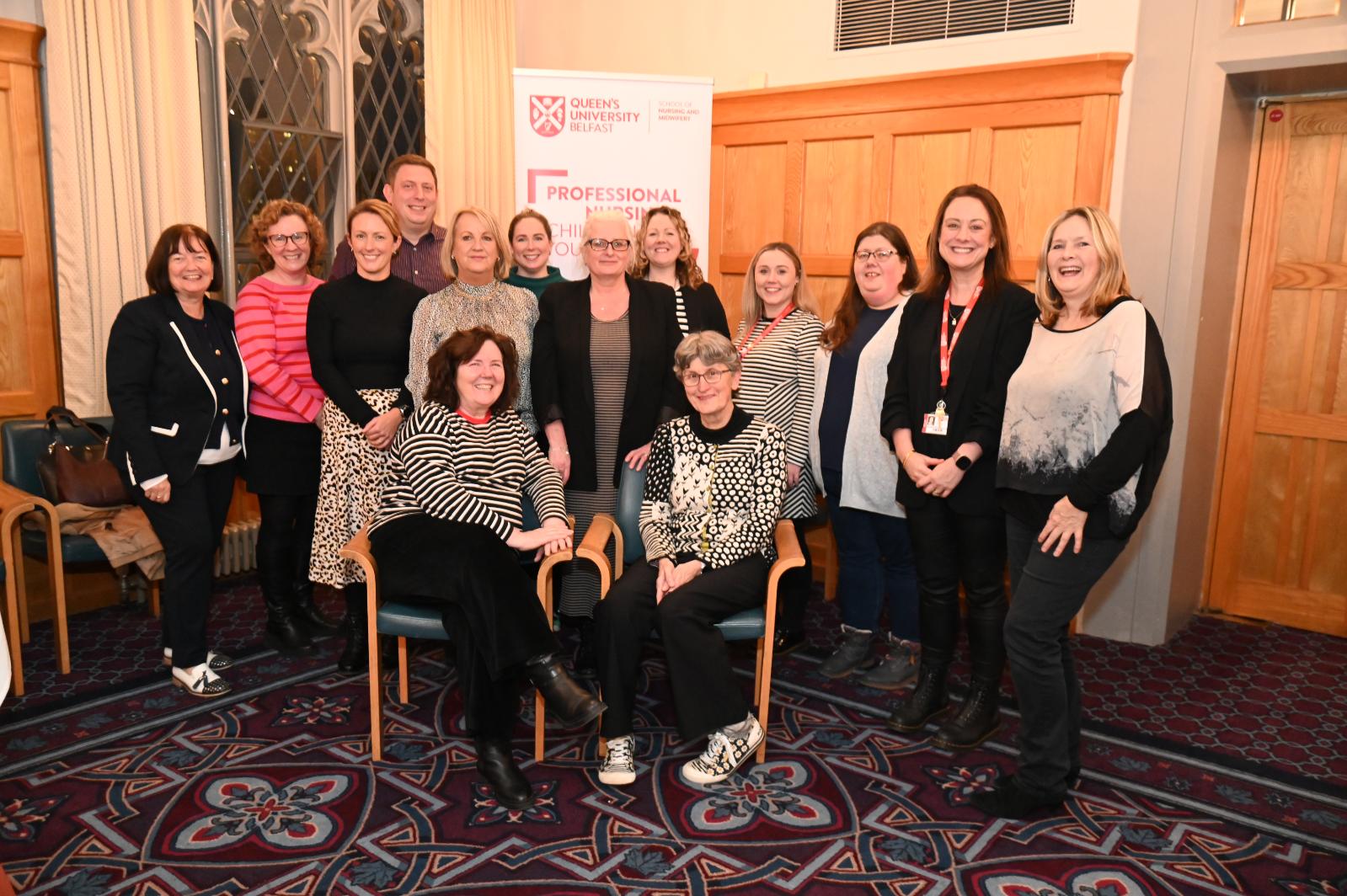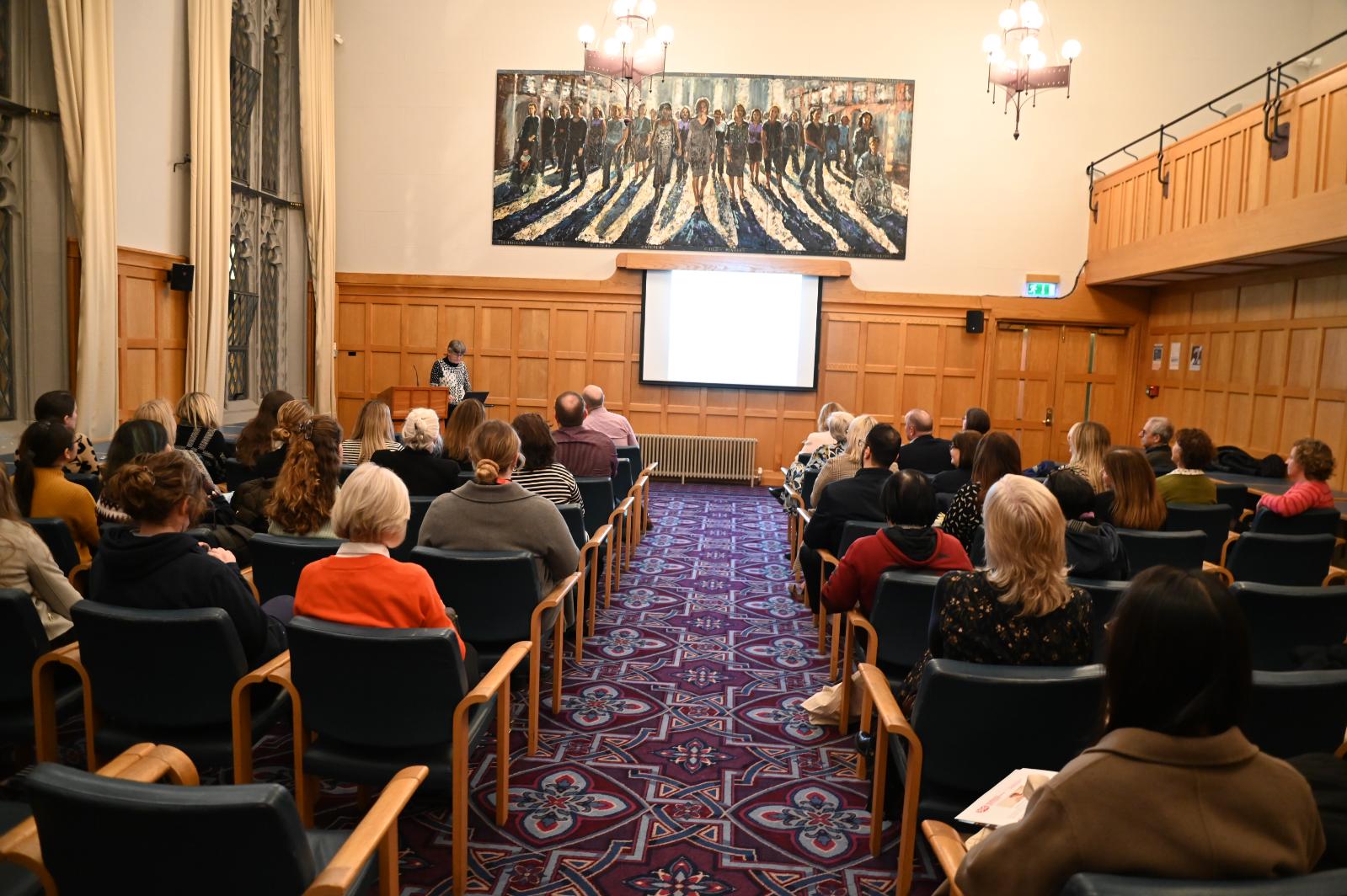Professor Bernie Carter - 11 February 2025
Click here to view presentation
It was a cold and dark evening on Tuesday 11th February 2025 when Professor Bernie Carter presented her Inaugural Professorial Lecture in the Council Chamber, Lanyon Building, QUB. Bernie is Professor of Children’s Nursing at Edge Hill University and Honorary Professor, School of Nursing and Midwifery, Queen's University Belfast. Bernie’s research focuses on improving the lives of children, young people and their families, particularly in relation to pain. The title of her lecture was ‘Oh, the stories you’ll tell’: research adventures with Lily and other children’. In attendance were members of Bernie’s family and friends who joined colleagues from health and social care, education and third sector organisations across Northern Ireland.
Bernie’s lecture focused on the stories she has been immersed in from both practice and research. She explained that we live in a world full of stories and navigate our lives through telling, sharing, and learning from stories. These stories are dynamic, idiosyncratic, and sometimes life-changing. They are formed and reformed through life experiences, the contexts in which they are told, and the responses they elicit.
Within her lecture Bernie described herself as a story-based researcher, noting it is a privilege to listen to and learn from stories and to share what she’s learnt. Bernie talked about how stories can create connections and understanding, situating storyteller and story-listener in-relation to each other but that they also occur in landscapes of power.
As a researcher focused on children’s pain she talked of how too often stories are marginalised because the storyteller is considered unreliable, their story trivial, predictable, or hard to hear. Although children were positioned as inarticulate and incompetent storytellers, the truth is very different. By sharing the stories children (and their families) tell about their pain, their illness, their distress, and their lives, Bernie showed how these stories can illuminate ways in which nurses and other health professionals can create therapeutic bonds. Bernie concluded that thinking about how to respond and act to children’s stories means we can become a positive presence in their stories.
Below are a selection of Professor Carter's Publications:
Carter, B. (2002) Chronic pain in childhood and the medical encounter: professional ventriloquism and hidden voices. Qualitative Health Research. 12(1): 28-41. https://doi.org/10.1177/104973230201200103
Carter, B. (2009) Tick box for child? The ethical positioning of children as vulnerable, researchers as barbarians and reviewers as overly cautious. International Journal of Nursing Studies. 46(6): 858-864. https://doi.org/10.1016/j.ijnurstu.2009.01.003
Ford, K., Dickinson, A., Bray, L., Water, T., Campbell, S. & Carter, B. (2018) Child Centred Care: challenging assumptions and repositioning children and young people. Journal of Pediatric Nursing. https://doi.org/10.1016/j.pedn.2018.08.012
Carter, B., Harris, J., Jordan, A. (2021) How nurses use reassurance to support the management of acute and chronic pain in children and young people: an interpretivist, exploratory qualitative study. Paediatric and Neonatal Pain. 3:36-44 https://onlinelibrary.wiley.com/doi/10.1002/pne2.12045
Carter, B., Young, R., Munro, J. (2022) ‘Communicating Lily’s Pain’: a reflective narrative commentary about co-creating a resource to provoke thinking and change about assessing and managing the pain of children with profound cognitive impairment. Paediatric & Neonatal Pain. 4(1): 3-10 http://doi.org/10.1002/pne2.12074
Carter, B., Jordan, A., Forgeron, P., Qualter, P. & Saron, H. (2023) A shared love: reciprocity and hopefulness in romantic relationships of young adults with chronic pain. Frontiers in Pain Research- Pediatric Pain. Volume 4. https://www.frontiersin.org/articles/10.3389/fpain.2023.1179516/full
Coyne, I. & Carter, B. (2024) Being Participatory: Researching with Children and Young People: co-constructing knowledge using creative, digital and innovative techniques. [2ed] Springer. https://link.springer.com/book/10.1007/978-3-031-47787-4

